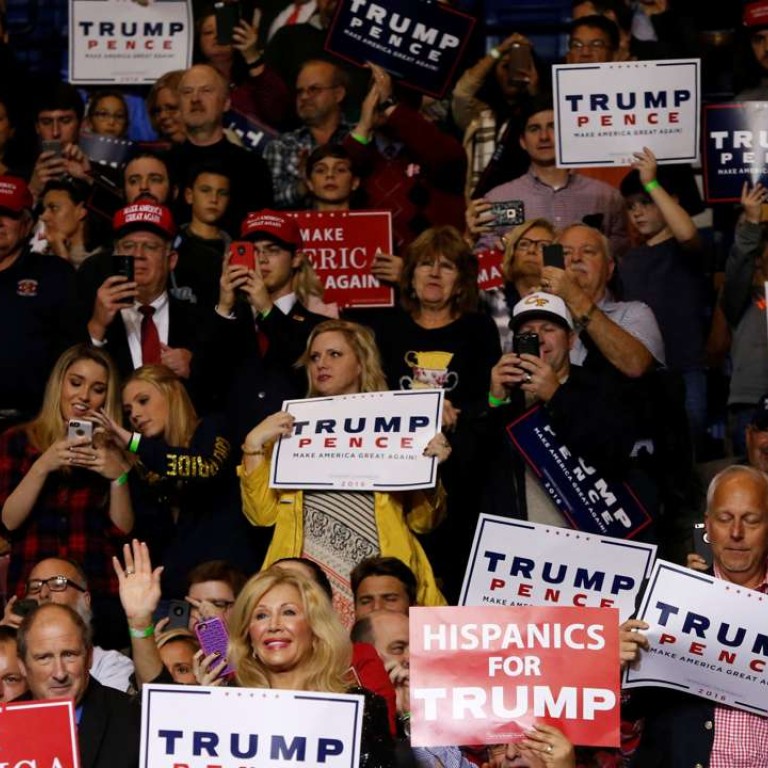
Letters to the Editor, December 8, 2016
Semi-liberal politics set up Trump victory
There is no doubt that the anti-globalisation trend is the main driving force behind the two events.
US citizens attributed the country’s high unemployment rate to the growing population of immigrants taking over local jobs. Hong Kong is worried that mainland China’s rapid economic growth may reduce the country’s economic dependence on Hong Kong, its semi-autonomous special administrative region.
However, besides economics, the article inspired me to look at the similarities between the two events from a political perspective. We should have a better understanding of semi-liberal politics.
As a “city upon a hill”, the United States was a symbol for democracy. And under “one country, two systems”, Hong Kong has also enjoyed a high degree of political freedom. However, Trump’s displeasure with the over-emphasis on political correctness and Beijing’s opposition to Hong Kong’s “umbrella movement” are pushing the people closer to semi-liberal politics.
This is not accidental. In The Old Regime and the Revolution (1856), Alexis de Tocqueville stressed that, “their yoke was the most intolerable where it was in fact lightest”. This means that a semi-liberal political system is more likely to be the breaking point of revolution.
Under semi-liberal politics, citizens have democracy in education; they have freedom of speech and demonstration; they have extensive international communication with democratic polities abroad.
Thus, semi-liberal regions are riper for revolution rather than totalitarian countries, and the pursuit of full democracy due to democratic awareness among the public of a semi-liberal political environment pushes citizens to endlessly fight for a better political system.
Trump’s victory is a result of the semi-liberal movement because he expressed public dissatisfaction with political correctness, which defines American populism.
Beijing has also referred to Tocqueville’s idea in relation to the Hong Kong issue.
Wang’s recommendation reflected not only the Chinese leadership’s sense of crisis, but Beijing’s concerns over the semi-liberal political status of Hong Kong, which could result in independence movements.
Therefore, anti-globalisation movements in semi-liberal polities are inevitable. It is not only because of economics, but also because of political concerns.
Jiaxuan Lu, Shanghai
Respect for LGBT groups long overdue
At the HSBC’s Hong Kong headquarters in Central now stand the statues of two lions decked in rainbow colours – on display for a month – to promote “Unity”, among other things.
What does unity signify? Unity stands for harmony in society, as regards family composition.
I am sure most people would agree that lesbian, gay, bisexual and transgender (LGBT) groups have been unfairly treated as “queer” and abnormal for too long. And that is hurtful.
HSBC’s gesture to show empathy, support and understanding towards the LGBT community is timely, encouraging and brave.
How would family values be trampled on by this little act, as activists have claimed?
What HSBC set out to do, as I see it, is more about promoting inclusion and acceptance, rather than inciting strife and attacks on those who think that a family should be formed by a man and a woman.
Hong Kong, in fact the world at large, needs to rethink their views on this.
Lee Cheuk Ming, Tuen Mun
Taxi driver violated rights of mother
I refer to recent reports about a Hong Kong taxi driver posting a photo of a breastfeeding passenger on his Facebook page.
Breastfeeding is the most natural thing for a baby. It is a fact that a baby can get the most nutrition from breast milk, and our government has long been promoting its health benefits.
Then why are we uncomfortable about mothers feeding their babies in public? The baby in the taxi was hungry, so the mother fed the baby. She was just doing what her role demanded.
The insensitive act of the taxi driver will probably make every mother in Hong Kong think twice before feeding their babies in public. Clearly the taxi driver violated the rights of the mother.
Owen Mak, Tseung Kwan O
Medical waste on beaches intolerable
This is a serious problem, as it not only affects beachgoers but also destroys the ecological balance. The government should investigate the incident.
The article said close to 400 used and unused syringes had washed up, some with needles still attached. There were also more than 200 drug phials, medicine bottles and packets of pills. Our beaches are often crowded. Imagine how dangerous it would be if a child stepped on a syringe in his bare feet. It would not only be painful, the child may even contract an infectious disease.
Also, it is intolerable that the ocean is full of medical waste, posing a threat to marine life. We consume seafood caught in these waters, and do not know if these are contaminated. If the catch turns out to be poisonous, it will be us customers paying a heavy price. We may suffer food poisoning, or worse.
This is a serious issue. The government and the Environmental Protection Department should investigate the source of the waste and ensure the safety of marine and human lives.
Cheng Tsz Lam, Kwai Chung
Phone scams point to need for vigilance
Phone scams have greatly increased since last year, and a number of them involved swindlers posing as mainland officials.
As the article said, there were 1,423 phone scams reported in 2015, compared with just 23 in 2014. It is tough to locate the criminals in such cases because they are faceless, operating under the cover of the internet and phone services.
People should be on guard if they receive phone calls from a strange or unknown number, and inform police if such calls are repeated.
Moreover, the authorities concerned in both mainland China and Hong Kong should enhance cooperation to prevent cyber crime and phone scams.
Mia Chu, Kwai chung

